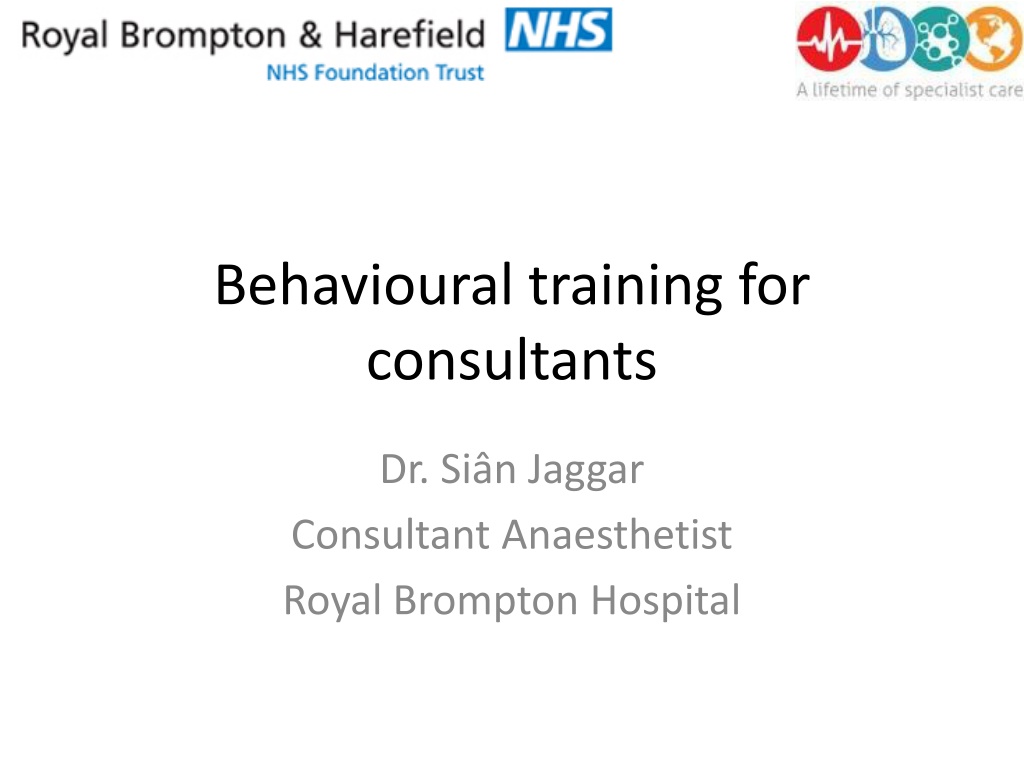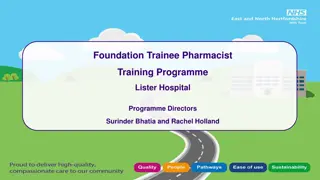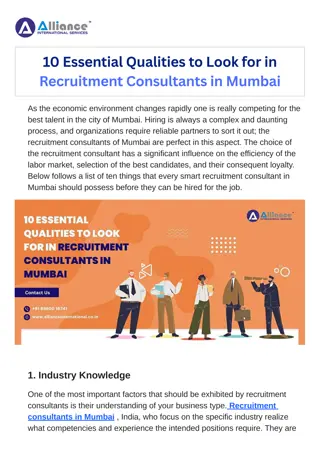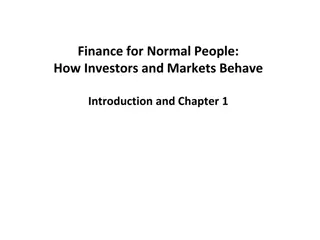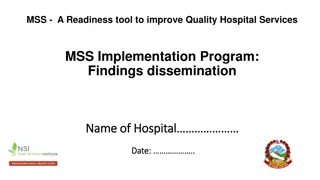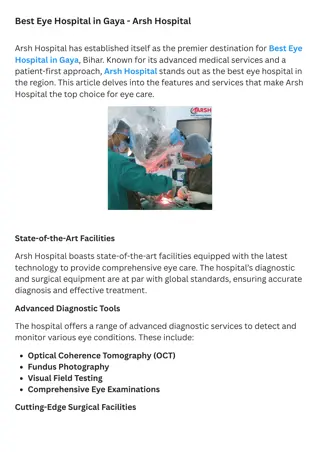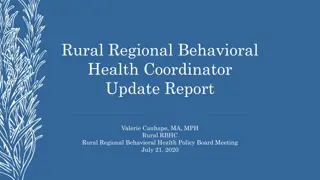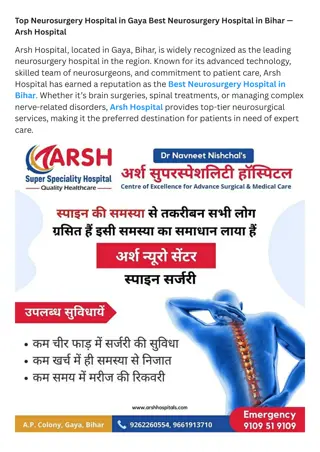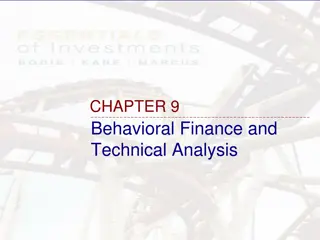Analysis of Behavioral Training for Consultants at Royal Brompton Hospital
This analysis delves into a behavioral training initiative led by Dr. Sin Jaggar, a consultant anaesthetist at the Royal Brompton Hospital, addressing issues of discontent, staffing problems, and a concerning culture within the NHS. The program involved sessions in theatres, HR support, and services for behavior and health. Results from the sessions, feedback, and reflections shed light on behaviors, self-reflection, and interventions needed among consultants, managers, and other healthcare professionals.
Download Presentation

Please find below an Image/Link to download the presentation.
The content on the website is provided AS IS for your information and personal use only. It may not be sold, licensed, or shared on other websites without obtaining consent from the author. Download presentation by click this link. If you encounter any issues during the download, it is possible that the publisher has removed the file from their server.
E N D
Presentation Transcript
Behavioural training for consultants Dr. Si n Jaggar Consultant Anaesthetist Royal Brompton Hospital
What is the problem? General discontent Staffing issues (including theatres) CQC report alarming culture within the NHS 1 in 4 staff have reported B&H from colleagues or managers safety is being jeopardised by dysfunctional rift .
What we did at RBHT B&H sessions in theatres HR provision B&H support service provision Theatre staff member Different outcomes Who asks makes a difference CONSULTANTS SHOULD BE MADE TO DO THIS
What we did next Consultant sessions Mandated by medical director Require Survey Monkey F/U All run by 1 consultant (me) Small specialist Trust = possible F/U after 2-3 months
Results 90 consultants attended sessions so far Follow up Survey Monkey 59 responses so far (of potential 85) 10 questions Q1-4 = definitions Q5-10 = reflections on self & others Average time spent 12 minutes
General findings Knowledge OK Definitions Skills not assessed Behaviour occurrence Required self-reflection This will be fed-back Consultants Managers AHPs
Findings extreme behaviours When did you last undermine someone? (n=32) Never I try to avoid In last few months 9% In last few years When did you last observe B&H or undermining? Number (n=40) 46% 34% Last few weeks 10 Last few months 10 Last few years 10 9% Don t know 6 Never 4 Who are you most likely to treat poorly? (n=59) Other consultants 40% Managers Junior medical staff 19% AHPs What did you do about it? Number (n=21) Nothing 4 Someone else reported it 2 29% Reported it 5 Spoke later to individual 2 5% Intervened 8
Findings bad behaviour When did you last adversely affect someone? Never ? How perceived Not reward bad care In last few years How often do you observe bad behaviour? Number (n=37) 24 Every day 5 3 Every week 15 3 2 Every month 5 Occasionally 7 Never 4 What did you do about it? Number (n=23) Nothing 5 Individual discussion 10 Variable 8
Findings behaviours What makes you behave badly? Numbers (n=59) Poor team engagement / incompetence / inefficiency 19 Bullying / poor behaviour by others 10 Work overload / sleep deprivation / stress 19 Management inconsistency 2 Nothing 5 What you Trust do to help you? Show appreciation Provide more personnel Stress management programmes = 7 Improved facilities (time/food/IT) = 3 Consistent management More teaching/focus on behaviour = 2 = 10 = 8 Its my responsibility Not up to the Trust (n=11) = 5
Summary Consultants are aware bad behaviour occurs in their work environment They think it is others behaviour that is an issue Consultants believe they are most likely to treat other consultants poorly 2x as likely to treat juniors from other teams badly Open discussion of behaviour should help guide local management
